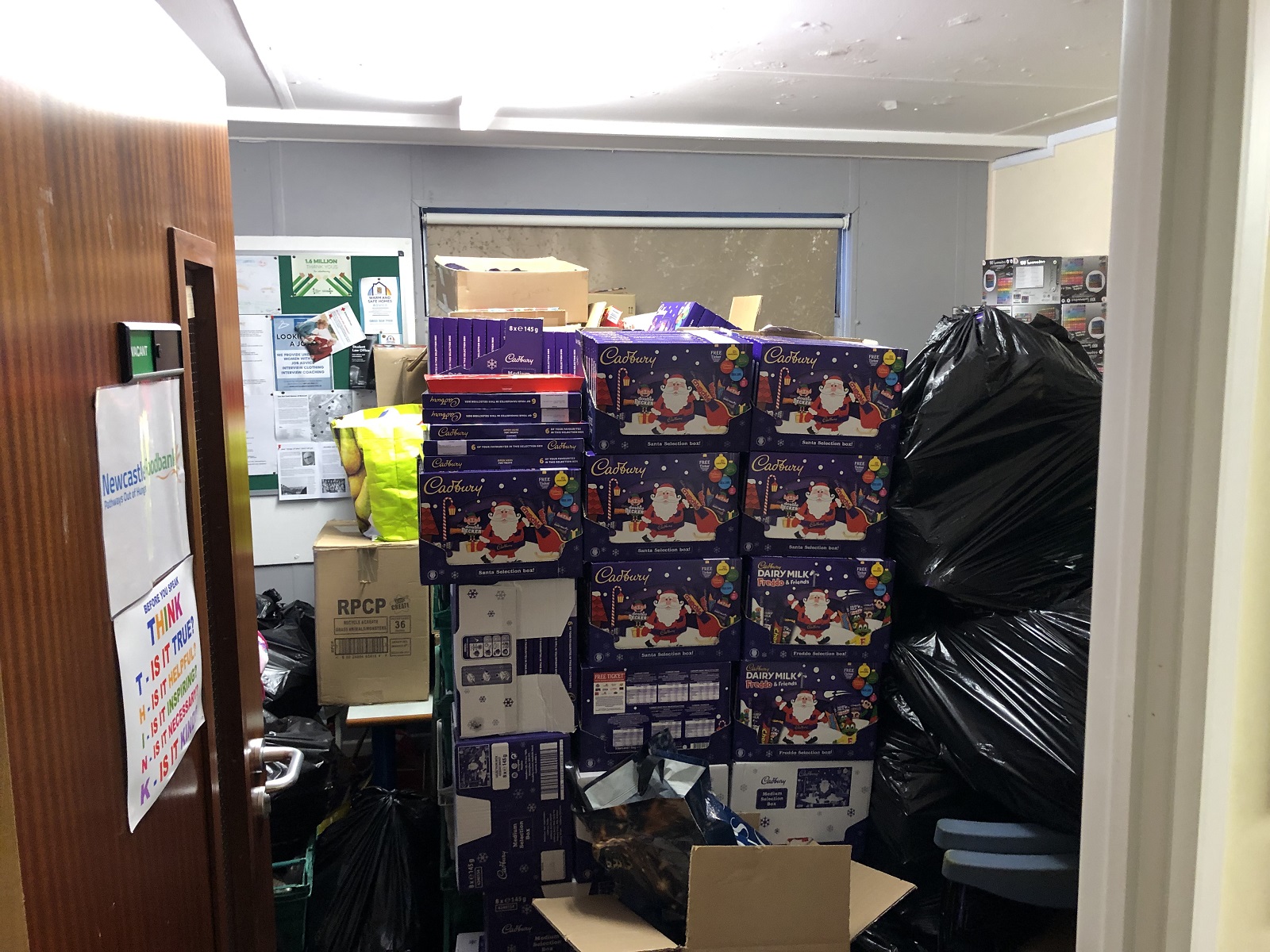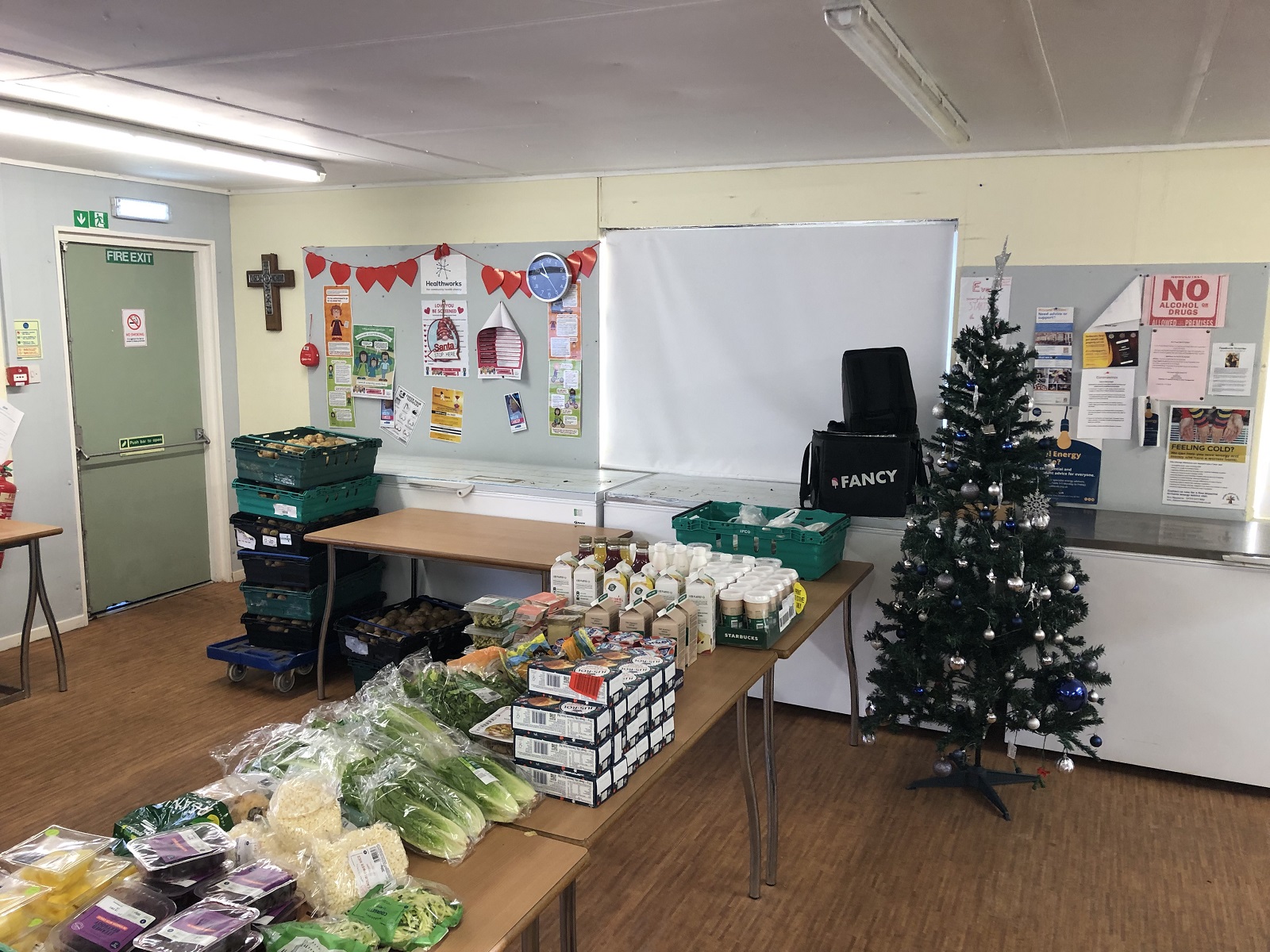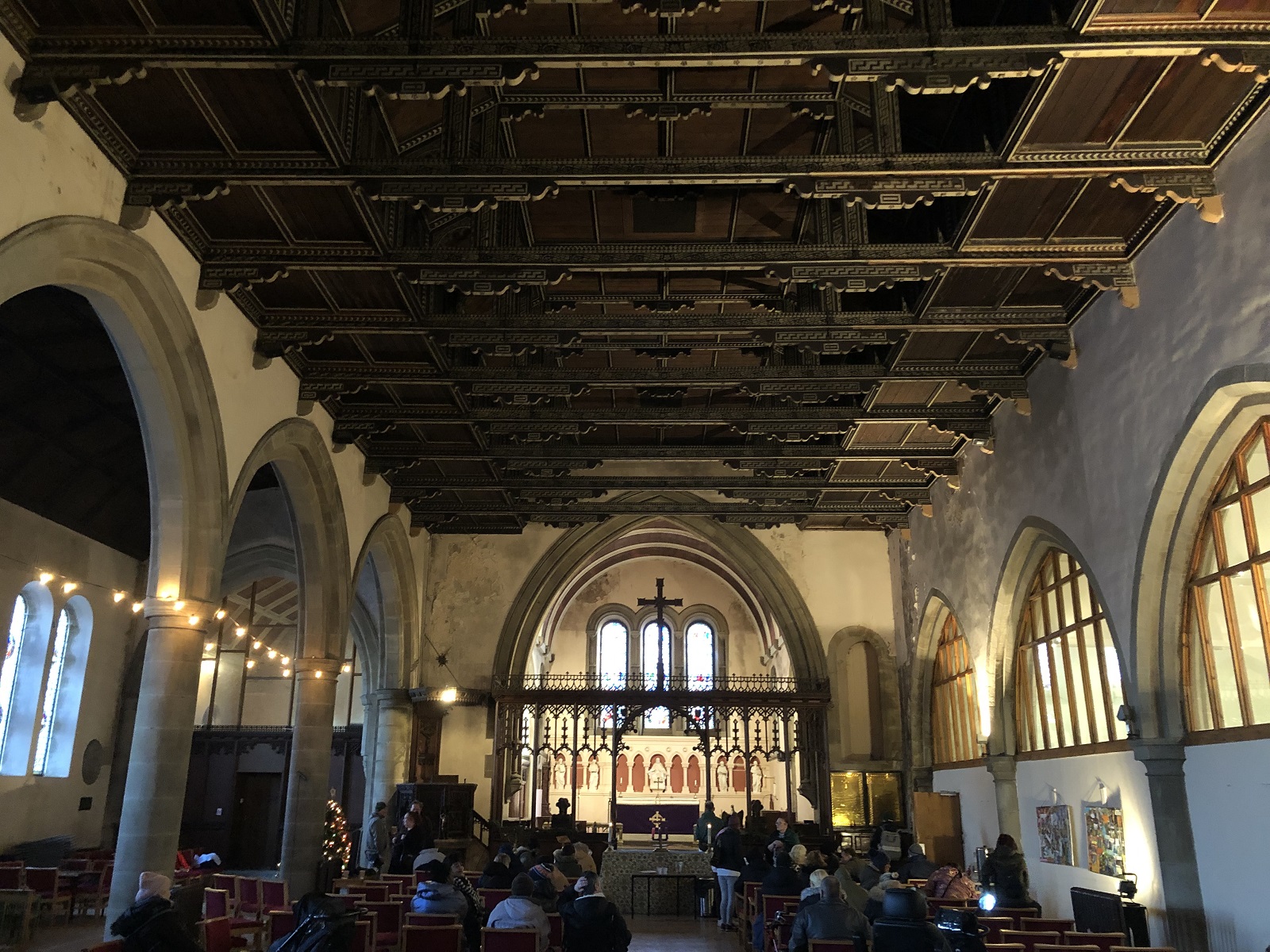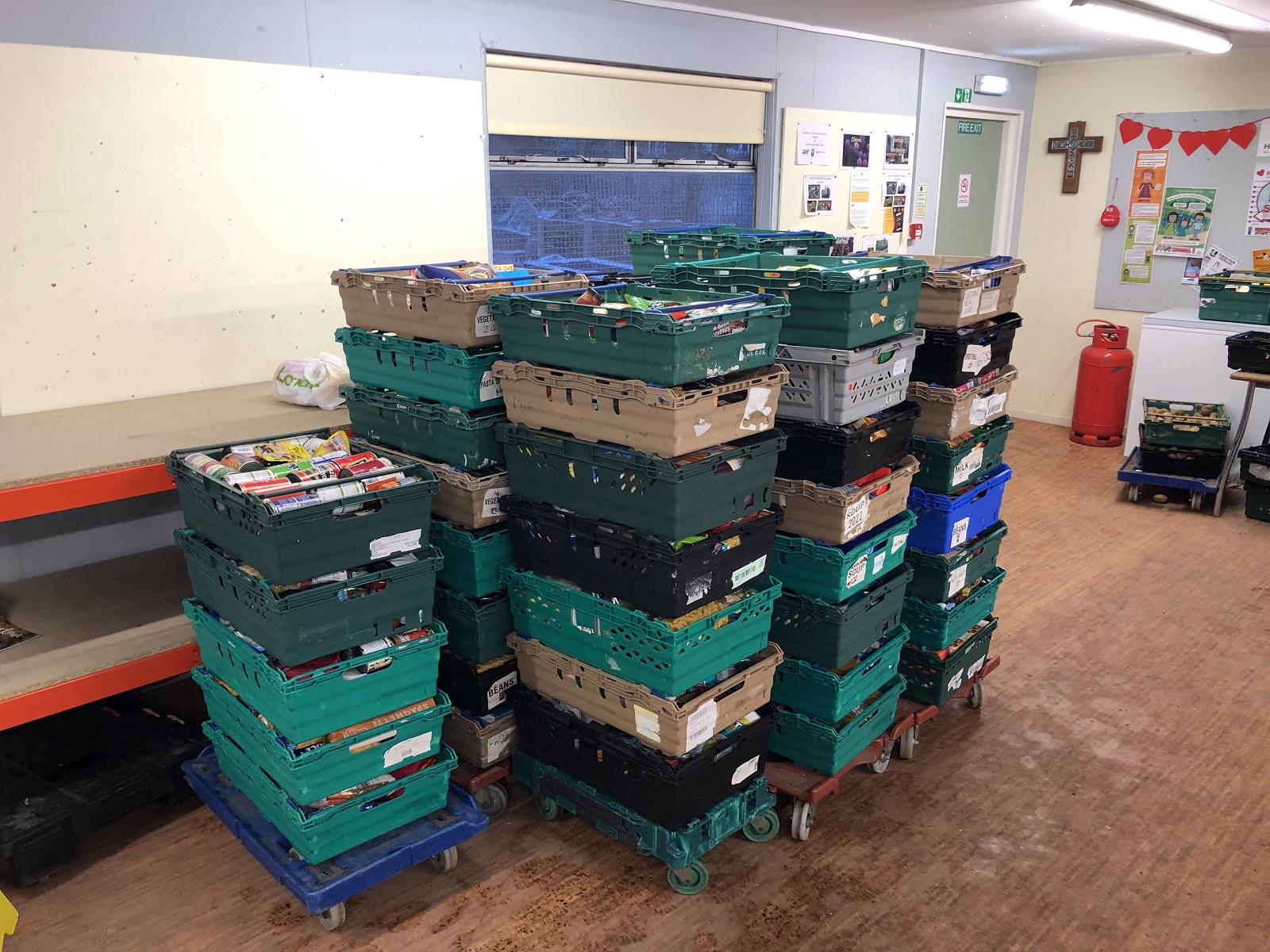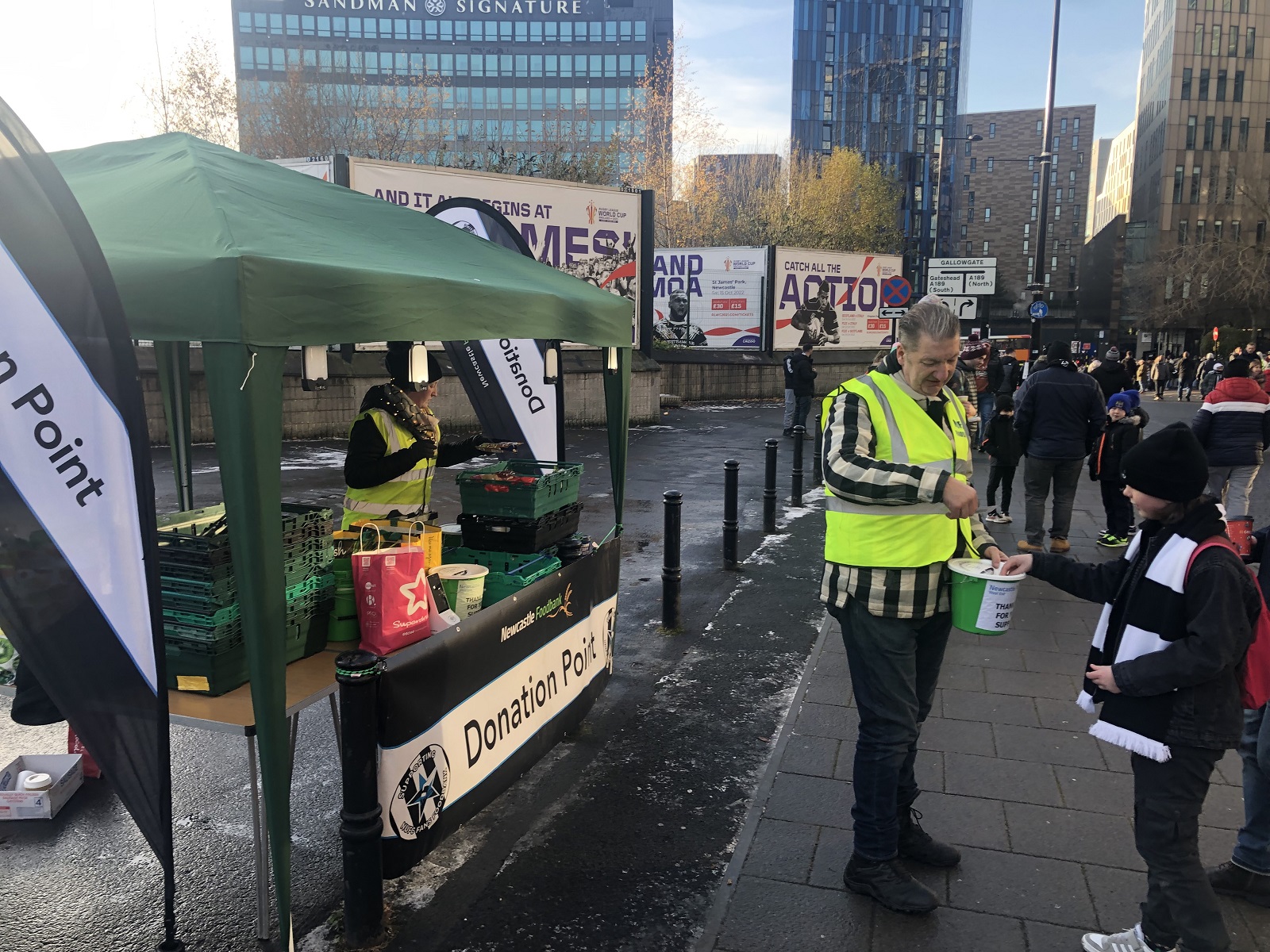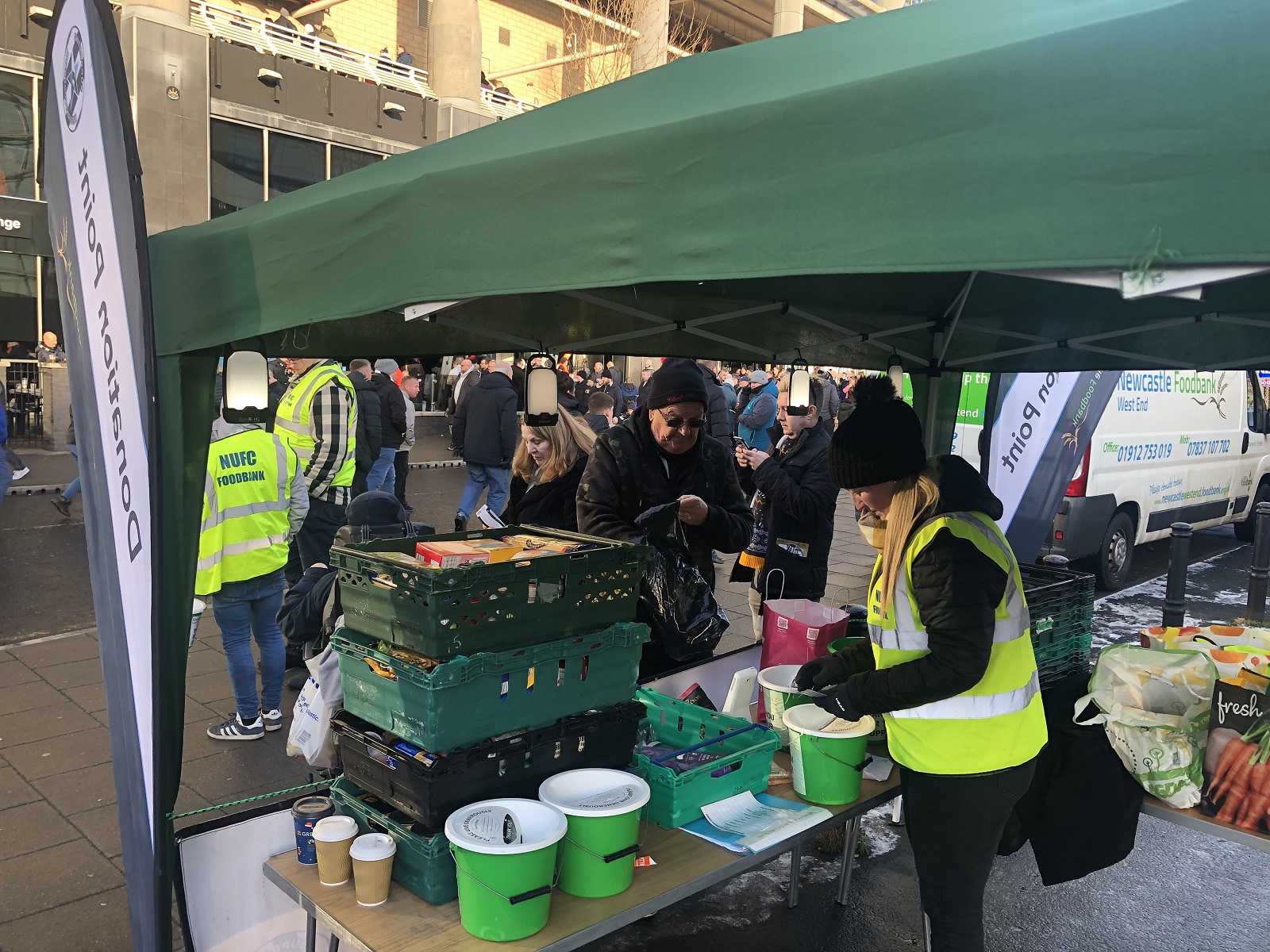Features
Dignity: Newcastle West End Foodbank at Christmas
Written by Tom Easterby
The temperature has barely risen above freezing for a week and, on this Wednesday morning, the frost clings more stubbornly to the ground than usual. Just off Benwell Lane and nestled in front of a compact housing estate stands Newcastle West End Foodbank. The building – modest, single-storey and cabin-like – is known locally as the Lillia, after the youth centre that once occupied the same site.
It is -3°C at 9:50am. That, on the most hectic days, is when the queuing starts.
-
Newcastle West End Foodbank opened in March 2013. It is one of the busiest in the country. They now have seven distribution points across the city as they approach their tenth anniversary. "It's not the sort of thing you want to celebrate," says John McCorry, its chief executive since 2018.
We are sitting in a small room adjacent to the kitchen. It has the feel of a meeting room but today it has been repurposed as storage space. "Christmas is always slightly different, as you can see from the stuff we have around you," John laughs. The walls are lined with selection boxes, hats, blankets, hot water bottles, gloves, toiletries, mince pies and Christmas puddings. There are some novelty headbands and glasses too, all soon to be sorted into 500 festive comfort packs for their clients.
The sense of doing something meaningful, of helping others, drives John and his small group of staff, as well as the 88 volunteers who work across their sites. Some have been giving up their time for years. He says one, Christine – who was an extra in I, Daniel Blake, the 2016 Ken Loach film about a carpenter and a single mother who are forced to traverse the benefits system in Newcastle – has been a volunteer ever since the foodbank opened a decade ago.
It is grim that their work is necessary. John references the line lamenting man's inhumanity to man from the Robert Burns poem Man was made to Mourn. "But actually, when you see people's humanity, that is really heart-warming, and rewarding," he says in a soft Belfast burr. "It's just compassion. When you see that being given back as well…" He leaves the rest unsaid. Witnessing the queuing, though, still cuts. "It's a really powerful thing. It never leaves you. And you know what, it's a shame. It's a shame that it's happening."
Recent research by the Trussell Trust, the nationwide network NWEF is part of, indicated that the cost of living crisis is changing the profile of those who find themselves in food poverty. It is not uncommon for teachers or nurses, professions that may never previously have required help, to join the queue. Between April and September this year, 320,000 people were forced to turn to Trussell Trust foodbanks for the first time – a 40 per cent increase on 2021's figure.
Demand, too, has risen. John estimates that they now need to hand out 23 tonnes of food a month. These are desperate times for a growing number of people. "It's been with us forever. I think it's just got worse lately," John says. "There's always a hope that life will get better for people, and I think right now is probably as bad as it's been in a long, long time. I would say it's really, really bad. Life is tough for people.
"If you have a job, especially a job you love, even on the odd morning you're thinking, 'oh God, I've got to get up and get out of bed'. But you've got a sense of purpose – life can be good, and you're fulfilled and all that. Can you imagine getting up to a cold house, and nothing? All these things are compounding people's hardship."
Over the years, the foodbank has evolved to offer a broader range of services. Their Pathways programme enables clients to access help and advice for anything that may be worrying them, or contributing to their food crisis. There are plans for a mobile pantry. The NUFC Fans Foodbank, which collects on behalf of NWEF outside St. James’ Park, has strengthened their links with supporters of the city's club, who donate thousands of pounds every matchday (with each donation matched by the Reuben Foundation). Donations arrive from as far afield as Hong Kong, New Zealand and Australia. Earlier in the day, NWEF's administrator Laura Willis took a call from a woman called Rose. She was ringing to ask what they are short of before sending a package over from Germany.
At the core of their approach, John explains, is dignity. "We don't make judgements about anyone, or assumptions," he says. "It's about acknowledging any of us can find ourselves in that situation. Things like Pathways are about giving people, hopefully, a means of retaining their dignity within a broken system at the minute.
"An awful lot of people don't see. It's invisible for a lot of people. If you live in a nice cul-de-sac and you've always lived there, and you're doing alright, and you went to a good school – or a middling school – and your parents have always worked and you've never lived in an inner city, it's invisible. You don't see it, really. Or if you do see it, you can be very judgemental of how people have lived their lives.
"But you don't know what that person's life experience is until you've walked in their shoes. That's where the non-judgemental, dignity bit is important."
-
The first clients begin to filter into the hall as soon as the door opens at 10am. Kathryn, the volunteer who looks after Wednesday morning's distribution at Benwell Lane, stands by the entrance. Clients hand her their voucher and she determines the size of the parcel needed, which is then packed at one of four stations by the back wall. Square trays containing Christmas dinners have been brought through from the kitchen and stacked on a trolley behind three tables of additional items, which include bread, fruit, crisps, puddings and potatoes.
Jack King is unboxing some of the extras. Having completed a clinical psychology degree, he became an advocacy wellbeing and support worker in October. He mainly works on the Pathways programme but is providing an extra pair of hands this morning. "If you switch off your panic and just think, 'I'm arranging food', it just kind of falls into place," he laughs, sensing my nerves as we unpackage fruit and crisps. "You're not going to get it wrong." Three other volunteers, Zach, Sunita and Javid - all from Iran - help too, and my uncertainty over where to put some of the stock is the only hindrance to an otherwise efficient and respectful operation.
When Kathryn first started overseeing this three-hour distribution session in 2020, they served an average of 70 households. Now, that figure is over 100. Last June she spoke about her experiences while part of the audience on Question Time. "I've seen more and more people in full time employment - some people in nurse's uniforms - coming to collect food parcels. Something is dreadfully wrong when people's full-time wages isn't sufficient for them to be able to affordably feed their families," she said. "I just think it's shocking. Something, fundamentally, needs to be done about it."
The host, Fiona Bruce, asked her what those people would say to her when they came to the foodbank. "They're actually embarrassed. They're ashamed to be using a foodbank. They're often first-time users - they've never had to do this before. We always say, 'we don't judge, needs must - take the food we can give you and use that income you've saved on heating your home, paying your bills, keeping yourself out of debt' - whatever it takes, really. There's a full spectrum of people who access our services, we provide debt advice as well, and the numbers are going up." Her comments went unaddressed by the panel, until that was pointed out by another audience member later in the show.
Having spent the final 20 years of her career in the voluntary sector, Kathryn says the feeling of doing some good is still a source of motivation and, secondarily, pride. She has an evidential rapport with regulars, who respond to her kindness.
"A couple of times, we've had to just pull people out of the queue and just sit them down, have a little chat with them," she says. "One lady, a full-time carer for her mother living in the family home… her mother died, she lost her source of income and she lost her mother, within a week. Then the house was too big for her, and she couldn't afford to pay the bills. Then she had to come here as well. There's just some really awful stories."
Another woman came for a food parcel for her and her three children. She told Kathryn it would have been for five people, but her son had died the previous week. Kathryn took her hand and sat her down. "You just have to show people empathy, and sympathy."
It is still biting as we speak by a heater in the main hall. In the last three hours or so, 110 households have been served. The spirit of the staff and volunteers is warming but Kathryn can't help but think about those who must wait in the cold for the food they need to live. "It's awful. It is," she adds. "You're used to it. But I just feel for them at this time of year.
"It's a double whammy, because they're queuing down at St. James' (Church) to get their voucher, and then they're coming up here and they're having to queue again."
-
St. James' Church is five minutes away, a short walk along Benwell Lane. The morning sun is blinding but there is still ice underfoot. A sign on the noticeboard by the entrance to the 19th century chapel informs visitors that the heating is broken.
Built in 1833, St. James' hosts one of NWEF's welfare hubs, where clients come for help from the Pathways project and other agencies. On the pews, people chat or scroll on their phones while they wait to be seen. Most are wearing hats, scarves and thick coats and some wait in line to pour a tea or coffee. A BBC film crew, who are producing a package for The One Show and their Gift a Bike for Christmas campaign, amble around capturing footage, adding to the background hum.
Through a door to the right, opposite the pulpit, is a modern annex with a comforting ambience, helped in part by a few functioning radiators on the wall. On the five round tables, advice is being dispensed and, just beyond them, a host of restored bikes are propped up against tall bookshelves, ready for collection.
The foodbank's Pathways, welfare and volunteer manager Carole Rowland takes a seat. It is a busy day, both because of the number of clients and the television crew's presence, and she is in demand. She initially joined NWEF as a volunteer in November 2017, working three days a week. One day, a woman broke down in front of her. "I took her out to the garden – it was a summer's day – and we sat down and started to chat," she recalls. "We'd been looking after her for about three and a half years, and I'd known her for about one year. What nobody knew was that for four days of the week she was actually living in Elswick Park.
"She had been abused in virtually every way you can imagine. I just thought, 'this can't be right'. This cannot be right, in any shape or form, anywhere in society. What I thought there and then was, we're giving food out – this is brilliant – and we're helping with other things. But what we need to really help with is welfare, and we need to look at the reasons behind."
The idea was to provide a service to help identify, assist with and therefore tackle the root causes which lead to a person seeking help from a foodbank. The Pathways project began in January 2020, just a couple of months before Covid-19 took hold. In the subsequent months, along with the remaining volunteers (they lost around 100 at the outset of the pandemic), Carole would head out into the community, sitting on garden walls and shouting over hedges in order to help and advise.
She encourages clients to "bring us your worries," she explains, and they do, with issues regarding housing, benefits, debt, illegal money lending, illiteracy and discrimination as well as more practical problems like broken windows or front doors without letterboxes. Personal Independent Payments (PIP) are another concern. "I've waited 17 months for a guy with stage four liver cancer to actually get his PIP. Seventeen months!" says Carole, with incredulity. "He's now got full PIP, and they've backdated it, and that's brilliant. But what about all the mental turmoil in between?
"In this area, and across the country, there are two types of crises. There is a life crisis, which can be a bereavement, redundancy, divorce, a huge bill. And there is a life of crisis. Sadly, in the North East of England, we have more lives of crisis than anywhere else."
Against this harrowing backdrop, the Pathways programme has brought in almost £1,000,000 of welfare benefits since they started (the figure is currently over £969,000; since the start of last month alone, they have obtained around £127,000 for clients). As we talk, a woman comes over to thank Carole. She has been allocated one of the restored bikes and her gratitude has brought her to tears. It is a deeply moving moment. Carole comforts her and arranges a lift to help the woman transport the bike home.
Back in the main church building, people wait to be seen. There can be trepidation at the prospect of coming to a centre like this, or to the foodbank, for the first time. Rachael is 28 and has been coming for seven months. "I've always been the type of person who'd be like, 'I'm not going to ask for help, I'll do it by myself'," she says quietly. "But they've made me feel so welcome. They don't just say, 'there's your food voucher, there you go, we're not helping you no more'. We've got help with gas and electric. They've offered to help with universal credit. There is other things that you can get and they will help you if they can – or show you where you can get help from."
Her partner, a Czech national, encouraged her to come initially. Problems with his share code further dragged out a convoluted process and impacted the family of five's income. After visiting St. James' to get a voucher Rachael collects a parcel from Benwell Lane or the Venerable Bede Church, on the West Road, once a week. Knowing she has a one-year-old, they'll often throw in nappies and baby milk. "I've seen myself (and) I know family members who've never ever struggled, who are now struggling. It's just crazy how you've went from being able to provide for your kids to asking for help," she says. That help means she can give her children some presents this Christmas. "It's all because of places like this."
Churches can be stifling but this is a patently sociable environment. Few are friendlier than Ben and Kian. They are cousins with the bond of brothers, they say, as they introduce themselves and take a seat in the alcove below the church's spire. They usually keep themselves to themselves but in this space, they've felt at ease approaching others, having conversations with new people.
"I've come up here to try and live a better life because I'm a recovering addict," explains Ben, 24, who is originally from Middlesbrough. "I've turned my life around now – both of us have turned our lives around. Now we've changed and we just want to progress and gain something (out) of it, you know?" He brought Kian, also a recovering addict, up to Newcastle earlier this year. "Because my life was just," Kian makes a crashing noise, "rock bottom."
Ben has a young daughter. He was a self-employed labourer, "a good grafter," he smiles. Since his teens, he's also done some plastering and painting and decorating. Providing became difficult as worked dried up and cocaine enveloped him. "But I'm a lot better today, as you can see," he grins. "I'm wicked."
Ben and Kian are both on benefits. Their income is £214 a month. Without Pathways, and the food they receive at the Lillia or the Venerable Bede "we wouldn't be able to live," adds Ben. "It's great, mate. The help they give you… Without people like this, people wouldn't be able to live. They do a lot of things for people and they do change people's lives. They progress people. They speak to you, they help you out. They give you all sorts.
"And it's not just about that. It's about the respect and love and care that the staff give you. That's what I respect them for. In my life, in what I've experienced, I've spoke with people and they've been not proper people. They've been cold hearted, you know? But people in this place, around Newcastle, they're just all very helpful. They'll do owt for you."
Painted canvasses line the chapel walls. One client, Daniel, presents two of his own pieces, which are due to be exhibited soon as part of the Something Wonderful art club run by the church. Many who use the foodbank attend, like Donna, whose partner's fluctuating wage led to uncertainty and difficulties with their rent. They don't have to use the foodbank every week but it has been a struggle to stay above the line. He has a chronic leg problem too; this morning, Donna had to walk him to the bus stop, fearful of him slipping on the ice and being unable to get up.
"It's been really hard. I can't describe that any other way," she says. "Especially with my electric and gas. It chews it up. We're putting 20-odd pound a week extra (in). I know it's maybe not a lot to some people, but that's a canny lot to me at the moment."
Many here share similar sentiments. Katia, 27, is from Russia. It's a complicated situation, she explains, as she is an asylum seeker who arrived in the UK two years ago. Primarily, she is here to collect a food voucher, "and also maybe get some advice, if I need it, about how to start my life here, how to cope with some problems."
Moving here and the challenges of her status have brought difficulties. It surprised her, pleasantly, that the foodbank's staff and volunteers took an interest in how she was feeling as well as her day-to-day issues. "They're very friendly. They always ask me how is my mood, because a few weeks ago, I was not well – like, emotionally," she says gently. "They really worried about me."
Katia feels comforted by the help as she bids to build a life here. She looks a little choked as she speaks about the welcome she received. "They're lovely people. I'm so grateful for them," she adds. "It gives me hope."
-
Back at Benwell Lane, with the day's distribution finished, there is work still to be done. It is mid-afternoon and, once a minibus' worth of donations have been moved inside, it is time to pack. The corridor behind the front door snakes past a small office towards the hall and is strewn with plastic bags, cardboard boxes and thicker, more durable carriers, all full of food gifted by organisations and individuals.
Each tin, packet and sachet needs to be put into stackable trays, which are then collected and taken to the foodbank’s warehouse, where they are sorted and returned for distribution. In the ensuing hour and a half of packing and stacking, four separate groups knock on the door bearing donations. Among the visitors is a father with his two young children, who trill 'merry Christmas!' as they drop off a couple of bulging bags.
The sun is beginning to set outside and, with much of the day’s packing done, Gemma Whaley has some time to talk. She is the foodbank's operations and logistics manager and is responsible for stock flow and supply chains, as well as management of the warehouse. The cost of living crisis, she says, is one of the reasons why the level of donations received by the foodbank nosedived in 2022, after previously reaching healthy levels in 2020 and 2021.
"The donations have been going down (and) from June, the demand has been going up, which has obviously coincided with buying more food in," she says. NWEF used to have to spend between £5,000 and £10,000 a month on extra food; that figure has increased this year to an average of around £15,000 a month. "Before June, the average (number of) food parcels we were giving out was about 1,400 a month. Since June, it's gone to 2,000. We're looking at an extra 600 people a month that we have to feed."
Last month, they gave out 2,074 parcels. Gemma estimates that, since April, they have had to spend £100,000 on food. "(From) April 2021 to March 2022, I think it was £65,000 we spent on food. From April 2022 to the end of November, it was about £130,000. But with inflation as well, we only gained a small margin in food for that price. It kind of shows you that (the cost of) food's doubled since the cost of living crisis. We're spending double on food, but not really gaining any more."
That level of spend is unsustainable. Newcastle United have provided financial support, as have the Reuben Foundation, but it all seems like a balancing act. Supply has been an issue in recent times too – there has been no guarantee that the entirety of their orders would be delivered, leaving gaps to plug – and while they have a trusted chain of suppliers now, it can all still feel a bit like chasing your tail. "As quick as you were ordering it, it was going out – the warehouse wasn't getting fuller," Gemma adds. "Every time you went to the warehouse, you felt like… I don't know, it's hard to explain… I guess a bit depressed in a way, because (of) all that work you were doing to get the food in. And it was just flying straight back out."
Donations in December have been promising but with demand still high, and ever rising, it is hard to predict what the landscape will look like by January. Does that worry her? "All the time. All the time," she nods. "You think if it keeps creeping up, 'how far is that going to go?'"
-
Saturday morning, just after 10:30am, Strawberry Place. In the shadow of the Gallowgate End, a van pulls in opposite Shearer's Bar and some tables, trays and a gazebo are unloaded by Gemma, Carole and John. It is two and a half hours before Newcastle United play Rayo Vallecano in their final friendly before the domestic season resumes and supporters are already beginning to populate the glassy, frozen streets around St. James' Park.
The twang of an electric guitar floats over from the South West corner of the stadium, where statues of Sir Bobby Robson and Alan Shearer watch over passing cars. Joe Bartley, a young lad from Denton Burn who brings his busking money to the foodbank, is sitting by the mound of grass which marks the corner of Barrack Road. You can hear him playing Local Hero as Bill Corcoran pulls on a fluorescent yellow jacket and picks up a bucket. It was him, along with Colin Whittle and Steve Hastie, who founded the NUFC Fans Foodbank in 2016.
Bill, from Heaton, is as fervent a champion of his city as it is possible to be. Colin is here today too. They make you feel like you’re in the company of old friends. Bill remembers coming here to watch Newcastle as a four-year-old in 1968; seeing the flash of green turf, hearing the swearing around him, feeling the belonging of home. He has been involved with many fan campaigns over the years. "Football is a very, very powerful thing," he says. "And in this city, it's used for the benefit of the people. And I'm all about that. That's everything I was ever taught by my granny."
His grandmother was a pitman’s widow. His grandfather, Bill Ingleby, was a member of the Mines Rescue Brigade, based at Benwell Towers. The building, also known as The Mitre, is – coincidentally – a stone's throw from the Lillia. Bill never met the man he is named after but his principles stay with him. "He had two sayings. He said, 'you keep a'had' – absolutely, you keep a'had. And, 'you leave no-one behind'. When he lived in Pendower, would he have tolerated a foodbank on his doorstep without doing something about it?"
Colin has put his high-vis vest on too. In late 2015, he became aware of the Fans Supporting Foodbanks initiative, which had brought Liverpool and Everton supporters together with the aim of tackling food poverty on Merseyside. "And at the time, (with) I, Daniel Blake coming out, it was at the forefront. We said, what can we do?" They held a showing of the film at the Tyneside Irish Centre, and by the end it was a struggle to hold back the tears. "I went on the stage and said, 'right, have a drink, let's have five minutes'," adds Bill, "'then we're going to do something about it'."
The group knew that NWEF faced significant challenges. Its former chief executive, Michael Nixon, had mentioned in passing that every Monday a member of staff would drive to London and fill the van with goods to bring back and distribute. "And we said, 'not on our patch'," Colin shakes his head. "'Nah – that's not happening in our community'. And it started from there.
"The one thing we had, here, was loyalty of the supporters, who still turned up, and had great belief in what the community could do and great belief in what supporters could do. So we tried to do something."
Having partnered with NWEF, the NUFC Fans Foodbank's first collection took place in February 2017 before the Magpies' 1-0 Championship win over Derby County. They began by taking donations and later received a permit to collect money. "And it's just spiralled," Colin adds. "The support and the contributions from fans has been absolutely magnificent."
Now, four years on, they reckon they receive an average of between £3,000 and £4,000 per matchday and between two or four trays of food. In an hour and a half in situ on Saturday, the public benevolence towards them is breathtaking. They are inundated with supporters of all ages, clad in black and white, who empty their change into buckets and drop off plastic bags full of tins. Parents tell their children about the cause they are donating to. Five, ten and 20 pound notes are handed over and gratefully received. Some hand over even more; one man on a bike rides past and delivers an envelope containing almost £500. It momentarily stops Gemma, who is stacking tins underneath the gazebo, in her tracks. It is far beyond heartwarming.
"Cheers for that, thanks for that," Bill calls after a father and son who passed him a fiver. "That'll feed a family next week." Three people approach the donation station to offer their spare tickets for the match. Toiletries and tampons have been handed over on matchdays too. "It's not just about the food, like Newcastle United isn't just about football," he adds. "It's about the dignity of people."
That word again. It brings to mind a black and white-striped flag bearing those seven letters across it, all in capitals. It belongs to the NUFC Fans Foodbank and has been flown here on Strawberry Place and inside St. James'. It was Bill's idea. "It just had the right number of stripes on it," he laughs. "And I had some black and white paint. I painted it in my kitchen and made a right mess. My wife went mental with me. There was black and white letters all over the kitchen. I didn't realise the paint would just go straight through it!"
Kick-off is 25 minutes away. Supporters are beginning to filter through the turnstiles now and another collection is almost over for Bill and the other volunteers. "It's the privilege of our lives to be here and see it, and witness it. It's very humbling," he says of the generosity they experience. "But we shouldn't have to be doing this."
Before we head in to watch the game, he tells me about his hope for the future. It is his dream, he explains, that one day, in better times, somebody will walk down Strawberry Place on their way to a match at St. James' Park. There'll be no tables, no trays, and there'll be no-one shaking buckets opposite Shearer's Bar. In Bill's vision, this person will take a look around before asking: didn't you guys used to have a foodbank here?
"And we'll say, 'yeah, we did have a foodbank here'," he says. "'But we don't anymore, because the people dealt with it'. And that's the response. The response is one of bringing dignity to the people."
